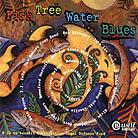July 1999
Founded in 1971 and calling itself The Non-Profit Law Firm for the Environment, ELDF has provided pro bono legal representation to hundreds of grassroots organizations fighting for the right "to live in a world rich with wildlife and natural resources, and to have clean air and water." It specializes in challenging government and commercial entities that threaten the environment. ELDF’s clients have included African Americans for Environmental Justice, the Southern Utah Wilderness Alliance, and others. "Earthjustice, in turn," the CD’s liner notes inform us, "subsists on donations from the public. By purchasing this CD, you are helping us work with communities to protect endangered species, ancient forests, and clean water." So, do we want to purchase this CD, support ELDF by sending money directly, or neither? To learn more about the organization, try its website: www.earthjustice.org. To learn more about the CD, keep reading. J.J. Cale leads off with a solid, steady R&B beat in "Stone River," written specially for the collection. "What used to be a stream, is now just a dream." A compelling, highly conventional R&B tune, it establishes R&B as the collection’s genre, consistent with the CD title’s analogy linking blues the music, blues the planet’s woes, and blues our dread when we honestly consider the ecosystem. But if you’re concerned at the prospect of sitting through 14 tracks, 3:21 to 6:34 in length, of straight R&B, you won’t worry for long because track 2, Ani DiFranco’s "Fuel," is a long poem spoken over a jam session, an ambitious extended metaphor performed with enough vocal variety and enough going on in the band to hold you longer than the song’s four minutes. Although the baseline is highly reminiscent of Lou Reed’s "Walk on the Wild Side," "Fuel"’s lyrics range much further. Variety thus established as rule number two for Fish Tree Water Blues, it is well maintained the rest of the way through. Wouldn’t want to promote homogeneity over biodiversity, now would we? Keb’ Mo’ in "Victims of Comfort," Branford Marsalis and Joe Louis Walker in "The Road You Choose," and John Lee Hooker and John Hammond in "Highway 13" develop the ecoblues theme in fine blues fashion. Then comes Tracy Nelson with "Mother Earth, reminding us that, no matter how rich you are, "when it all comes down, you’ve got to go back to Mother Earth." After Roomful of Blues’ "Blue Blue World" ("It’s a blue, blue world when you’re worried in your mind"), Mavis Staples gives us the gospel classic "I’ll Fly Away," her performance brilliantly balancing restraint and powerful expression. But from here, the middle of the CD, it is not all downhill. Although Loudon Wainright III, of "Dead Skunk in the Middle of the Road" fame and a long-time folkie favorite, isn’t a particularly "down" R&B singer, his "Hard Day on the Planet" is a clever play on a hard day at the office, showing through humorous irony the tragic nature of our collective eco-error. Alvin Youngblood Hart follows with "Rollin’ River," a rapid-paced traditional instrumental with Brian Godchaux in the lead on a well-played scratchy-sounding fiddle. Not R&B at all -- shh! But after that brief lapse, the Robert Cray Band yanks us back to R&B. Cray, one of my favorite singers on this CD or anywhere else, presents a previously unreleased live version of the David Walker/David Plenn song "The Forecast (Calls For Pain)." Cray’s guitar and Kevin Hayes’s drums shine here, despite the gloomy forecast. Then backed by seven musicians who really sizzle, Ruth Brown masterfully sings "Ice Water in Your Veins," by her old friend Johnny Otis. The liner notes quote Brown as saying, "I haven’t always had a lot of money, but I’ve always had time for causes and causes have always had time for me." Then "Take Me to the River," by Al Green and Hodges Mabon Lewis, recorded many times, even by Talking Heads, puts the water back outside of the body: "Take me to the river, won’t you wash me down…. Take me to the river, drop me in the water." This time it’s Bob Weir doing the bobbing, as RatDog with Charlie Musselwhite. Strong at first, Weir’s voice becomes hoarse and at times goes entirely downstream. Etta James ends the CD with "Take It to the Limit," taking the chord progression’s bluesy qualities to the limit with her powerful gospel voice and her band’s gritty rhythm and horn sections far more than the Eagles did in their original recording. If you’ve got a few bucks for a cause like advocating for life itself, or at least for an assemblage of fine performers who found the time or the tape to contribute, this is an exuberant blues collection -- if that is allowed -- that celebrates awareness and implicitly the human capacity to get the ice water out of our veins and fix the fish tree water blues. GO BACK TO: |
 Various Artists - Fish Tree Water Blues
Various Artists - Fish Tree Water Blues![[Reviewed on CD]](../format/regcd.gif) Fish
Tree Water Blues, the star-filled benefit R&B CD for Earthjustice Legal Defense
Fund (ELDF), is as important spiritually and socio-politically as musically. On the one
hand there is the defense of our planet, and on the other the diverse collection of
musicians who lay down unique tracks for this collection.
Fish
Tree Water Blues, the star-filled benefit R&B CD for Earthjustice Legal Defense
Fund (ELDF), is as important spiritually and socio-politically as musically. On the one
hand there is the defense of our planet, and on the other the diverse collection of
musicians who lay down unique tracks for this collection.